What Type of Battery Is Best for a Golf Cart?
When it comes to powering a golf cart, the battery is the heart of the system. Without a reliable and efficient battery, even the most advanced cart cannot deliver the performance, range, and dependability that players or passengers expect. But with multiple battery technologies available—ranging from traditional lead-acid to advanced lithium-ion—many fleet managers, distributors, and even casual owners ask the same question: what type of battery is best for a golf cart?
The short answer: it depends on your operating environment, budget, and long-term goals. In this article, we’ll take a closer look at the major battery options for golf carts, compare their performance, and evaluate which ones make the most sense in different scenarios.
The Main Types of Golf Cart Batteries
- Flooded Lead-Acid Batteries
Flooded lead-acid batteries are the most traditional choice for golf carts. They are widely available, relatively inexpensive, and trusted by operators for decades.
- Pros:
- Lowest upfront cost
- Easy to source and replace
- Well-understood by mechanics and operators
- Cons:
- Require regular maintenance (checking electrolyte levels, adding water, cleaning terminals)
- Long charging times (typically 8–10 hours)
- Shorter lifespan (500–800 cycles under normal use)
- Heavy weight, reducing efficiency
- Best suited for:
Individual owners who use their golf carts occasionally and are comfortable performing regular maintenance.
- AGM (Absorbed Glass Mat) Lead-Acid Batteries
AGM is a sealed version of lead-acid technology. It’s designed to reduce maintenance while offering better resistance to vibration.
- Pros:
- Maintenance-free (no watering required)
- Safer handling (no liquid acid exposure)
- More durable than flooded lead-acid
- Cons:
- Higher cost than flooded lead-acid
- Still relatively heavy
- Charging efficiency and lifespan remain limited compared to lithium
- Best suited for:
Smaller fleets or users who want less maintenance but aren’t ready to invest in lithium.
- Gel Batteries
Gel batteries are another sealed lead-acid variation. They use a gel electrolyte, making them more resistant to spills and vibrations.
- Pros:
- Maintenance-free
- Stable performance in hot climates
- Good safety profile
- Cons:
- Higher upfront cost than AGM and flooded lead-acid
- Sensitive to charging methods—improper charging can damage them
- Moderate lifespan (800–1,200 cycles)
- Best suited for:
Resorts or facilities operating in high-temperature environments where spill-proof safety is a priority.
- Lithium-Ion (LiFePO₄) Batteries
Lithium batteries represent the newest generation of golf cart power systems, with rapidly increasing adoption among commercial fleets and distributors.
- Pros:
- Long lifespan: 3000+ cycles, reducing replacement frequency
- Fast charging: typically 2–3 hours, minimizing downtime
- Lightweight: reduces strain on vehicles and increases range per charge
- Maintenance-free: no watering, no corrosion cleaning
- Smart battery management: built-in systems optimize charging, discharging, and performance for better reliability
- Cons:
- Higher upfront cost
- Requires compatible chargers and sometimes wiring adjustments
- Best suited for:
Fleet managers, resorts, and distributors seeking to maximize uptime, reduce maintenance labor, and achieve long-term cost savings.
How Battery Type Impacts Fleet Operations
For individual golf cart owners, the decision may come down to budget and convenience. But for B2B users such as golf courses, tourist resorts, and fleet operators, the choice of battery has direct implications for operational efficiency and profitability.
- Downtime and Charging:
Flooded lead-acid batteries often require overnight charging. For a fleet of 30+ carts, this means either purchasing backup carts or dealing with downtime. In contrast, lithium batteries can be recharged within a few hours, allowing carts to return to service quickly. - Maintenance Workload:
With lead-acid, staff must regularly check and refill electrolyte levels, clean terminals, and ensure safe handling of acid. In a large fleet, this becomes a full-time task. Lithium batteries eliminate these steps, allowing operators to focus labor on customer service instead of maintenance. - Total Cost of Ownership (TCO):
While lithium has a higher initial price, its long lifespan (3000+ cycles) means fewer replacements, fewer man-hours spent on maintenance, and lower operational downtime. Over a 5–8 year horizon, this often results in significant savings compared to lead-acid.
So, What’s the Best Battery for a Golf Cart?
There is no single answer that fits every situation.
- For budget-conscious individual users → Flooded lead-acid may still make sense.
- For small fleets with moderate use → AGM or Gel offers a good balance between cost and convenience.
- For commercial fleets, resorts, and high-traffic golf courses → Lithium-ion is quickly becoming the standard due to its efficiency, reliability, and long-term economic benefits.
Many fleet operators are already making the shift. If you want to understand the key considerations before upgrading, check out our detailed golf cart lithium battery upgrade guide.
Why Battery Maintenance Still Matters
Regardless of which battery you choose, proper maintenance can extend lifespan and reduce unexpected failures. This is especially true for lead-acid types, where neglecting watering or cleaning can shorten service life dramatically.
Routine upkeep can significantly affect operational efficiency, especially for large fleets. Our in-depth maintenance guide explores how proper care impacts both performance and long-term costs.
Final Thoughts
Choosing the best golf cart battery requires balancing upfront costs, operational efficiency, and long-term sustainability. For commercial fleets and distributors, lithium batteries stand out as the most strategic investment. They not only improve vehicle uptime but also reduce the burden of ongoing maintenance and replacements.
For businesses and distributors seeking scalable solutions, explore our golf cart battery portfolio to see models designed specifically for fleet applications and heavy-duty use.


